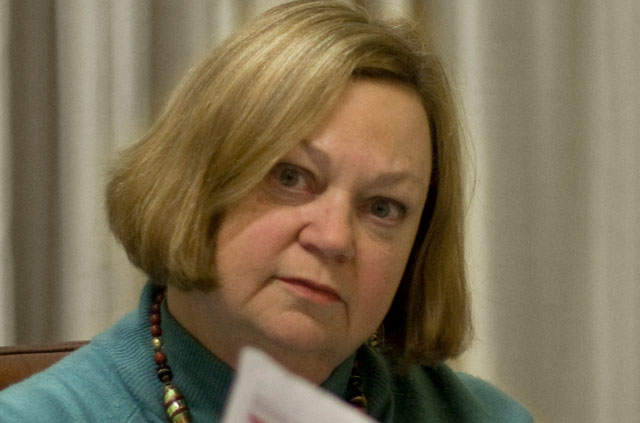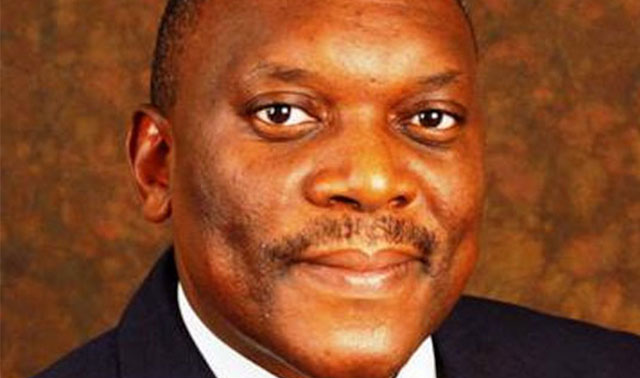
The Democratic Alliance has raised concerns over the lack of transparency over South Africa’s signing of a cybersecurity pact with China.
On Monday, telecommunications minister Siyabonga Cwele signed a “plan of action” on ICT cooperation with China’s minister of industry and IT Miao Wei.
The plan of action seeks cooperation between the two countries in nine areas: broadband strategies for implementation and rural access; investment in telecommunications services; e-skills professional training; electronics manufacturing and technology transfer; e-government; small to medium enterprise incubation in ICT; research and development in ICT; Internet governance; and cybersecurity.
But it is the pact on cybersecurity that worries the DA, which has criticised China’s Internet freedom record.
Internet censorship is strongly in place in China as authorities in that country clamp down on dissent. China’s renowned “great firewall” also blocks online services such as social network Facebook and Google’s e-mail service, Gmail.
“My main concern is that I’m hoping it’s not a meeting of kindred spirits,” said DA MP Marian Shinn.
“South Africa definitely is in a bit of a sort of shaky position right now. We know that there’s increased unrest and the governing party is feeling a little insecure in its tenure among the electorate.
Shinn also said she fears that the two countries could be “sharing tips” on how to curb the use social media during legitimate protests.
In turn, Shinn has also suggested that the South African government be more transparent about what the cybersecurity pact with China entails exactly. Shinn has written to Cwele asking for more details.
“Whatever agreement is in play with whatever government on these issues, it should be open and transparent and we need to know what they are,” Shinn said.
“As far as I’m concerned, no issue of cybersecurity or Internet governance should be solely in the domain of the government. In fact, the government is only one of the players in drawing up these strategies and policies on this. It has to be a multi-stakeholder approach,” said Shinn.
Shinn also raised concerns about how China itself is increasingly being accused of waging high-level hacking attacks on the likes of the US government and its companies.
Cwele’s spokesman, Siyabulela Qoza, said the plan of action signed with China is intended as a framework in which government also looks at best practices regarding issues such as cybersecurity.
Qoza said South Africa consults with other countries on best practices regarding cyber issues.
Speaking about the nine focus areas in South Africa’s signed ICT plan of action with China, Qoza said that government is consulting a wide array of people.

“What is going to happen going forward is that we are going to have the government and also the business community working with us to deliver on each of those nine areas that we have identified,” he said.
“We also engage civil society in some of these areas to give meaning to this agreement so that this is just a framework of what it is that we can do and how we can pursue that.”
Speaking on the topic of cybersecurity, Qoza did not comment on China’s censorship of the Internet in that country. He also did not say exactly how China will help South Africa in its cybersecurity efforts.
“China is a bit more advanced than us, and it is good to also benchmark what we are doing against what others are doing across the world.”
But Qoza did say that South Africa needs to focus more on cybersecurity at home.
“You do need to have a focus on cybersecurity because we now have more people transacting online. People need to be comfortable and confident that the information that they share online is protected,” said Qoza.
Qoza said his use of the word “transacting” not only refers to buying goods online but also engaging in other activities such as social media.
“We’re looking at how we can strengthen the security of our online platforms. If people do not have confidence in the security of the network, people will not use online platforms. So, this cybersecurity aspect is focused around that. Trying to make sure that more of our citizens can transact with confidence on the online platforms.”
Qoza also said that cybersecurity is a multi-department programme within in government. He said officials are working with the CSIR to create a cybersecurity hub.
Last month, South Africa’s ministry of state security said that it plans to “enhance” South Africa’s institutional cybersecurity capacity, finalise the national cybersecurity policy, and present the cybersecurity bill before cabinet this year.
While politicians discuss cybersecurity in South Africa, the country’s Internet population continues to grow strongly.
According to research released by World Wide Worx MD Arthur Goldstuck, the number of Internet users in South Africa is forecast to reach a “conservative estimate” of 18,5m during 2015 and surge to 24,5m by 2020.
The surge in Internet adoption is expected to be driven by growing smartphone usage.
Goldstuck has previously said that smartphone usage in South Africa is expected to top 23,6m users this year, up from 19m in 2014. — Fin24




